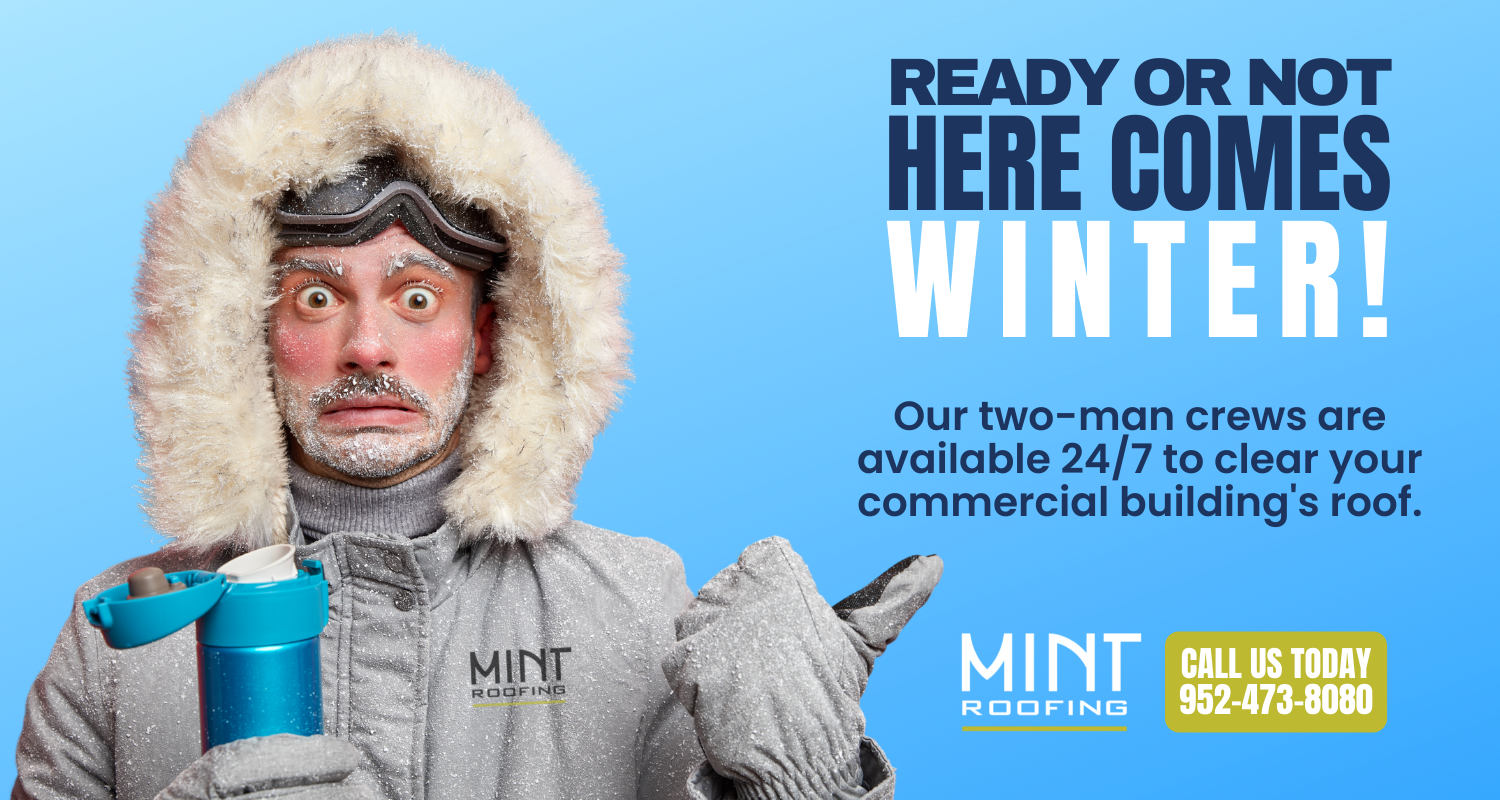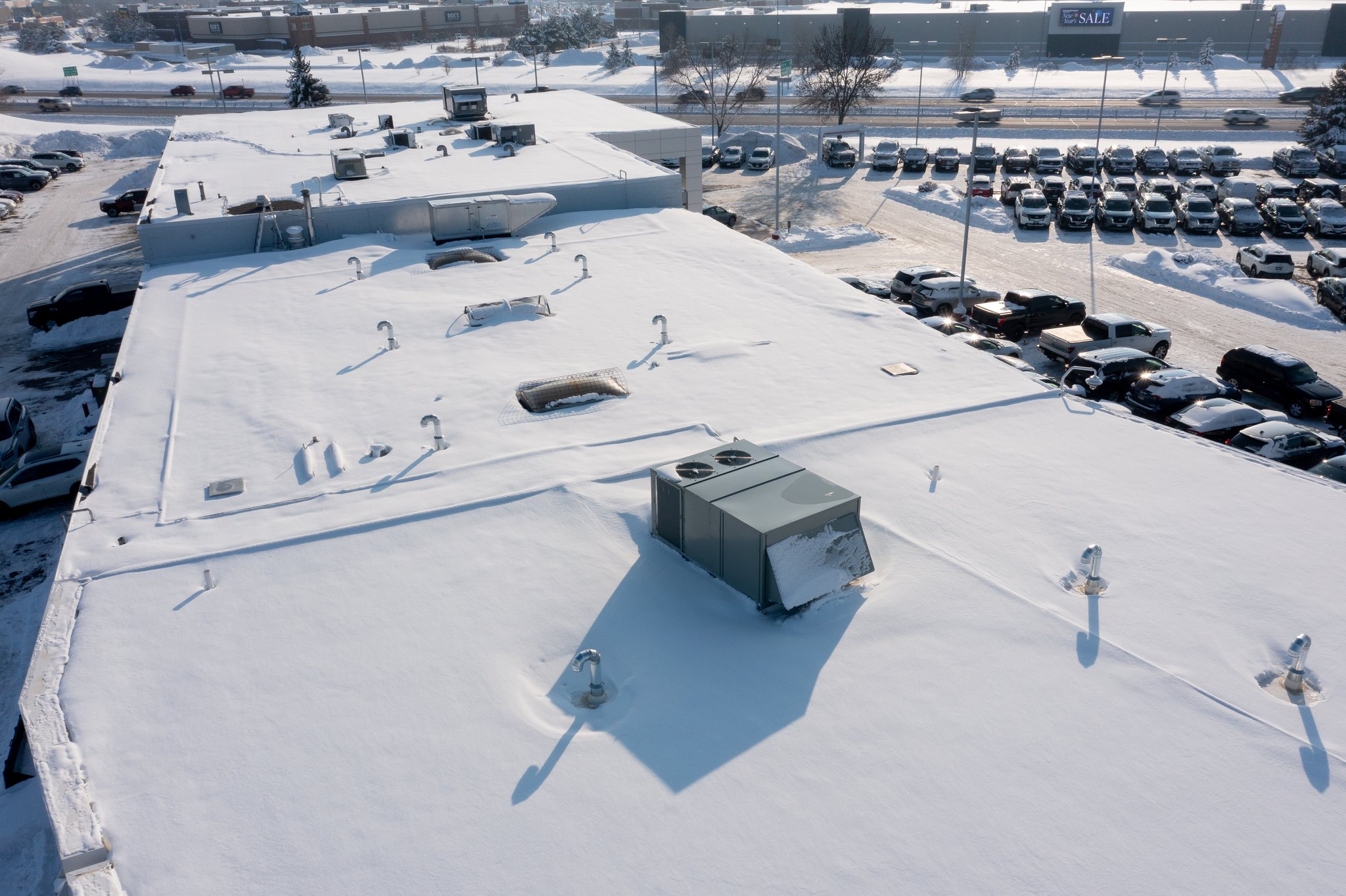Now that winter is officially here, many commercial building owners and managers start to think about the potential problems that may arise due to the inevitable snow and ice buildup on their roofs.
While we tend to think of summer rainfall as the leading cause of roof leaks, winter weather can also pose a significant threat. Snow and ice are often more damaging than rain because they can create hidden issues that go unnoticed until it’s too late.
In this blog, we’ll discuss the causes of winter roof leaks and how to tell if you have a commercial roof leak in the winter months.
Causes of Winter Roof Leaks
Snow and Ice Buildup
One of the most common causes of winter roof leaks is the excess weight from snow and ice buildup. As snow accumulates on a roof, it can put a strain on the structure and cause damage to roofing materials.
Similarly, as temperatures fluctuate and snow melts and refreezes, ice dams can form, preventing proper drainage and leading to water seeping into the building.
During the winter, it is common for temperatures to fluctuate, causing snow and ice to melt during the day and refreeze at night. This freeze-thaw cycle puts tremendous stress on your commercial roof, and if it’s not properly constructed or maintained, it can lead to leaks.
The snow buildup can also cause water to pool on the roof, which can eventually seep through weak spots or cracks. If you notice any unusual snow or ice buildup on your commercial roof, it’s essential to contact a professional roofing contractor immediately to assess the situation.
Damaged or Aging Roofing Materials
The age of your commercial roof and the materials used to construct it can also affect its resistance to winter leaks. As roofing materials age, they become more susceptible to damage caused by weather events such as snowstorms, ice storms, and heavy rains. Regular maintenance and inspections by your professional roofing contractor can help identify such issues before they become significant problems.
Clogged or Damaged Drainage Systems
Gutters, scuppers, drains, and downspouts are designed to move water off your commercial roof. However, during winter, they can become clogged with debris like leaves, twigs, and ice.
When this happens, the water can back up and flow under the roofing material, leading to leaks. Ice can also build up inside the drainage system downspouts if they are mounted to the exterior of the building. This can lead to the components separating from the structure, resulting in additional damage.
Inadequate Insulation
Another common cause of winter roof leaks is poor insulation or ventilation beneath the roof of the building. This can create warm pockets of air that melt snow and ice on the roof, refreezing when it reaches colder areas. This cycle can cause damage to roofing materials and ultimately lead to leaks.
What are the Signs of a Winter Roof Leak?
In some instances, you may not be able to spot signs of a roof leak from the exterior. However, any water stains or discolorations on your commercial building’s interior walls or ceilings could be a sign of a roof leak.
It’s essential to contact a professional roofing contractor to inspect your roof and identify and resolve the issue any time you suspect a leak. Delaying repairs can lead to further damage to your building’s structure, which can be costly to repair.
So, how do you know if your commercial roof leaks during the winter? Here are some signs to look out for:
- Water spots or stains on walls or ceilings
- Dripping sounds coming from the ceiling
- A musty smell in your building
- Mold growth on interior surfaces
- Buckling or warped walls, floors, or ceilings
- Peeling paint or wallpaper
- Water puddles on ANY floor of the building
If you notice any of these signs, acting quickly and contacting a professional roofing contractor for an inspection is crucial. Catching and resolving a roof leak early on can save you money in the long run and prevent more significant issues from occurring.
Leaks Can Find Their Way Anywhere
Don’t assume you’ll only find leaks on the uppermost floor if you have a multi-level commercial building. Roof leaks tend to find their way into the lower levels, making it challenging to determine their source.
Water can travel inside walls, down elevator shafts, or even through electrical wiring, causing damage to various areas of your building.
With gravity on its side, water will take the path of least resistance and find its way to the lowest possible point in your building. It’s not uncommon to dismiss water on a below-grade floor as something other than a roof leak. However, chances are pretty good that it did, indeed, originate with the roof.
This is why it’s crucial to have a professional roofing contractor conduct a thorough inspection if you suspect your roof is leaking to identify the source of any leaks.
Prevention is Key
The best way to prevent winter roof leaks is by ensuring that your commercial roof is well-maintained throughout the year. Regular inspections and maintenance can help identify and address potential issues before they become major repairs.
It’s also a good idea to have a professional roofing contractor conduct a thorough inspection of your roof before winter to ensure it is prepared to withstand the harsh weather conditions.
You should also keep your roof cleared of deep snow to prevent excess weight load and the potential for ice dam creation. Local roofing contractors like Mint Roofing have crews that can be dispatched to remove accumulated snow and ice to reduce the chance for leaks to form.
Maintaining Your Roof Costs Far Less Than Repairing It
Commercial building owners and property managers need to stay vigilant when it comes to protecting their building’s roof from winter weather damage.
By understanding the potential causes of roof leaks in the winter, such as temperature changes and snow buildup, damaged or old roofing materials, clogged gutters and downspouts, signs of water damage, and by conducting regular professional inspections and maintenance, you can avoid the costly repairs associated with roof leaks and prolong your commercial roof’s lifespan.
Contact a professional roofing contractor like Mint Roofing for assistance winterizing your commercial building’s roof and ensuring seamless operations throughout the winter months.



